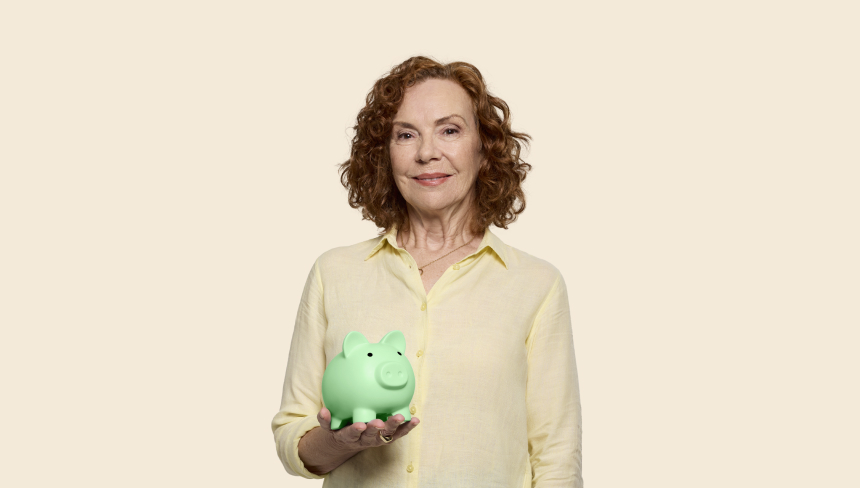December 04 2023
Loading...
Most people tend to retire in their 60s or even 50s, but retirement isn't one-size-fits-all. The ‘best’ age to retire really boils down to you, your personal situation, and what makes you feel good.
What is the best age to retire?
There’s no right age to retire and this will look different for everybody. In the 2022-23 financial year, the average retirement age was 56.9 years old, and the average age people intended to retire was 65.4 years, according to the latest Australian Bureau of Statistics (ABS)1. But it's not unusual for Australians to work beyond this age. Your retirement age will depend on a range of personal circumstances, which we’ll explore below.
What to consider before deciding when to retire?
Before you circle a retirement date on your calendar, it's essential to consider several aspects of your life that could impact your decision.
Accessing your super and the Age Pension:
There’s a good reason why many Australians aim to retire in their mid-60s. Depending on your birth year, you can access:
- your super either once you reach your preservation age (between the ages of 55 and 60) and retire or once you reach the age of 65 (whether or not you’ve retired).
- your pension once you reach your Age Pension age (between the ages of 65.5 and 67), if you qualify.
These retirement-related age thresholds will come into play when you start thinking about where your income will come from after you stop working.
Home ownership:
Housing often makes up a big chunk of your expenses. Owning your home outright can considerably reduce your expenses and provide a form of financial security. However, if you're still paying off a mortgage or need to pay rent, you’ll need to factor these ongoing costs into your retirement budget.
Work:
Work not only provides income, but it can often be a source for social connections and a sense of purpose, which may contribute positively to your mental health. The decision of when (or whether) to stop work is a personal decision. There are people who love their jobs so much they wouldn't dream of saying goodbye. If this is you, there’s the option of ‘semi-retiring’, by reducing working hours. This lets you ease into a new lifestyle while continuing to receive income and super contributions from your employer.
Health:
Being in good health helps you make the most of your retirement life. You can’t put a price on health, but medical costs can significantly affect your budget. These expenses may include regular check-ups, prescription medications, potential surgeries, and private health insurance.
Lifestyle:
What's on the horizon for your retirement days? For some, the thought of kicking back at 60 and spending their days doing puzzles or traveling around the world sounds like a dream. Also consider any caring responsibilities you may have for loved ones. Caregiving may not only impact your finances but also the amount of free time you have in retirement.
Finances:
Of course, there’s the big question of how you’ll fund your retirement. How financially prepared are you? Assess your savings, investments, pension, and other potential income sources to ensure they align with your projected retirement expenses.
How much will you need to retire?
Figuring out how much money you'll need to save for retirement can feel overwhelming, but you can begin to estimate the amount by thinking about your personal circumstances, financial situation, and what you want to do during retirement.
To start, take a look at your current expenses and consider how these expenses might change in retirement. Then think about where your money would come from if you were to stop working. Your super, potential Age Pension (if you’re eligible), and other investments are a few that should come to mind.
You should also consider unexpected costs that may pop up in retirement and any debts you have. Plus, don't forget about factoring in inflation - the cost of living will likely be higher in the future than it is now.
Read more about working out how much you might need in retirement.
How long will my retirement savings last?
To estimate how long your retirement savings will last, there are several variables you should consider.
Drawdown rate:
The rate at which you withdraw your retirement savings can greatly affect how long they last. Underestimating your living costs or facing unexpected events, such as healthcare or aged care costs, could lead to draining your super faster than planned. If you have an account-based pension, the pension drawdown rate sets the minimum rate you must withdraw annually.
Expected lifespan:
Living longer than expected is a good problem to have, but it comes with a challenge: the risk of outliving your retirement savings. Running out of savings could mean becoming fully reliant on the Age Pension, if you’re eligible, which may not cover all your needs.
Investment returns:
The performance of your investments is one factor that may impact how long your savings last. Market fluctuations during your retirement years may affect the value of your super investments, either stretching or shrinking your nest egg.
Inflation:
If you hold more conservative investments, such as cash, they may not grow at the same rate as the cost of living. This difference could impact your income and may deplete your savings quicker than you anticipated.
Other income:
Having other income sources can lighten the load on your super and Age Pension. This could be part-time work, rental income, or investments outside your super. The less you need to draw from your super, the longer it's likely to last.
For an easier way to work out how much super you'll have to spend in retirement and how long it may last, check out our online Superannuation Calculator. It can project your future balance to help you see if you’re on track to achieve your dream retirement.
Try now
What about transitioning to retirement?
If you're thinking about working less but you're not quite ready to retire, you might consider dipping into your super with a transition to retirement (TTR) account. This can help top up your income as you cut down on work hours. The idea is that you may be able to keep your take-home pay pretty much the same, even though you're working less.
In simple terms, a TTR account lets you start using some of your super while you're still on the job. It's not for everyone, but it’s an option you could consider if you’ve reached your preservation age and want to slowly ease into retirement, by working less while still bringing in money.
However, remember that a TTR strategy means you're starting to use up your super, likely earlier than originally intended, meaning you'll have less super left when you fully retire. Plus, this may affect things like government benefits and life insurance. The strategy might also include salary sacrifice, so it's smart to chat with a financial adviser to see if TTR makes sense for you.





